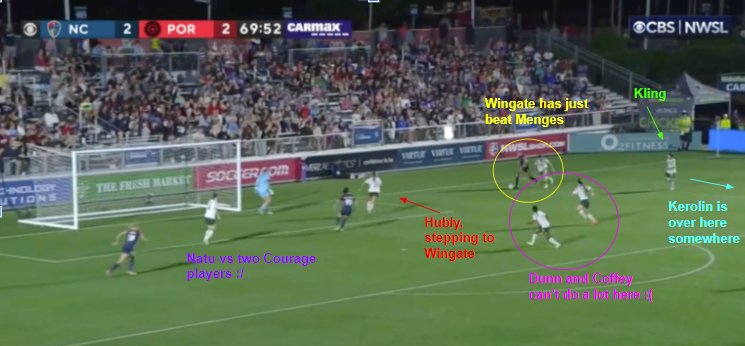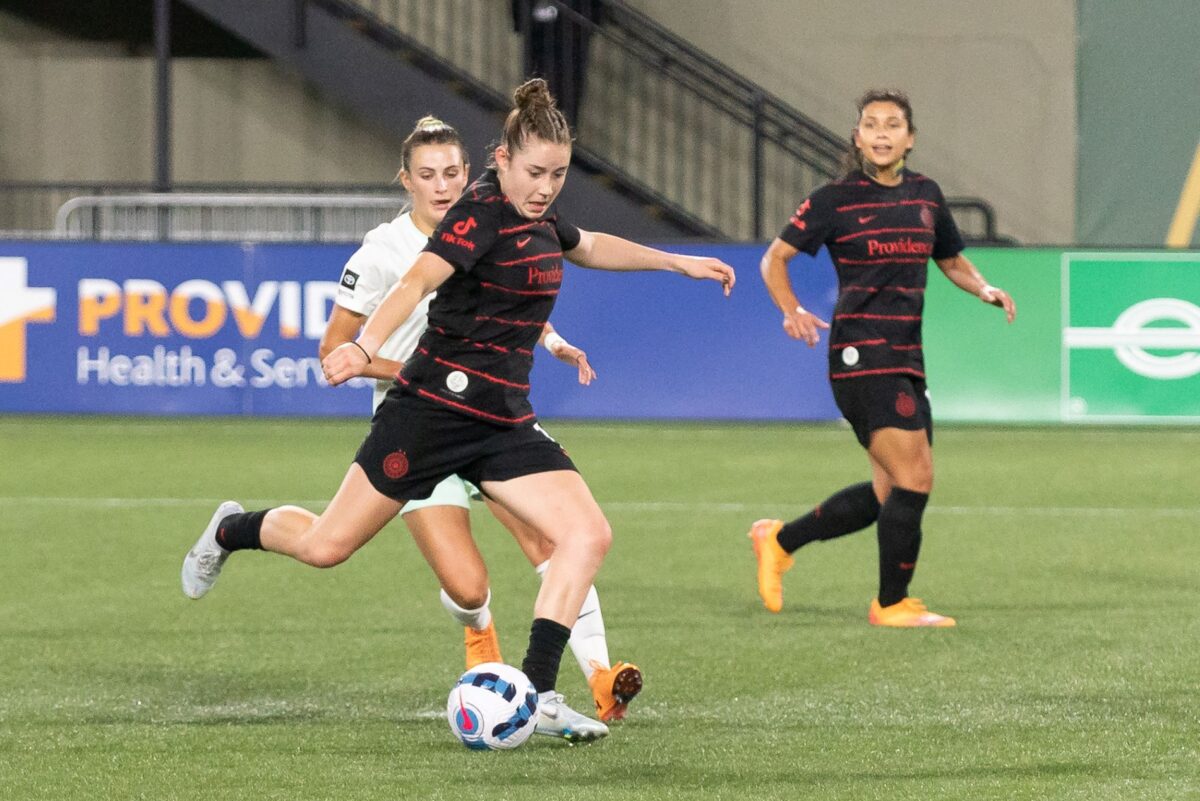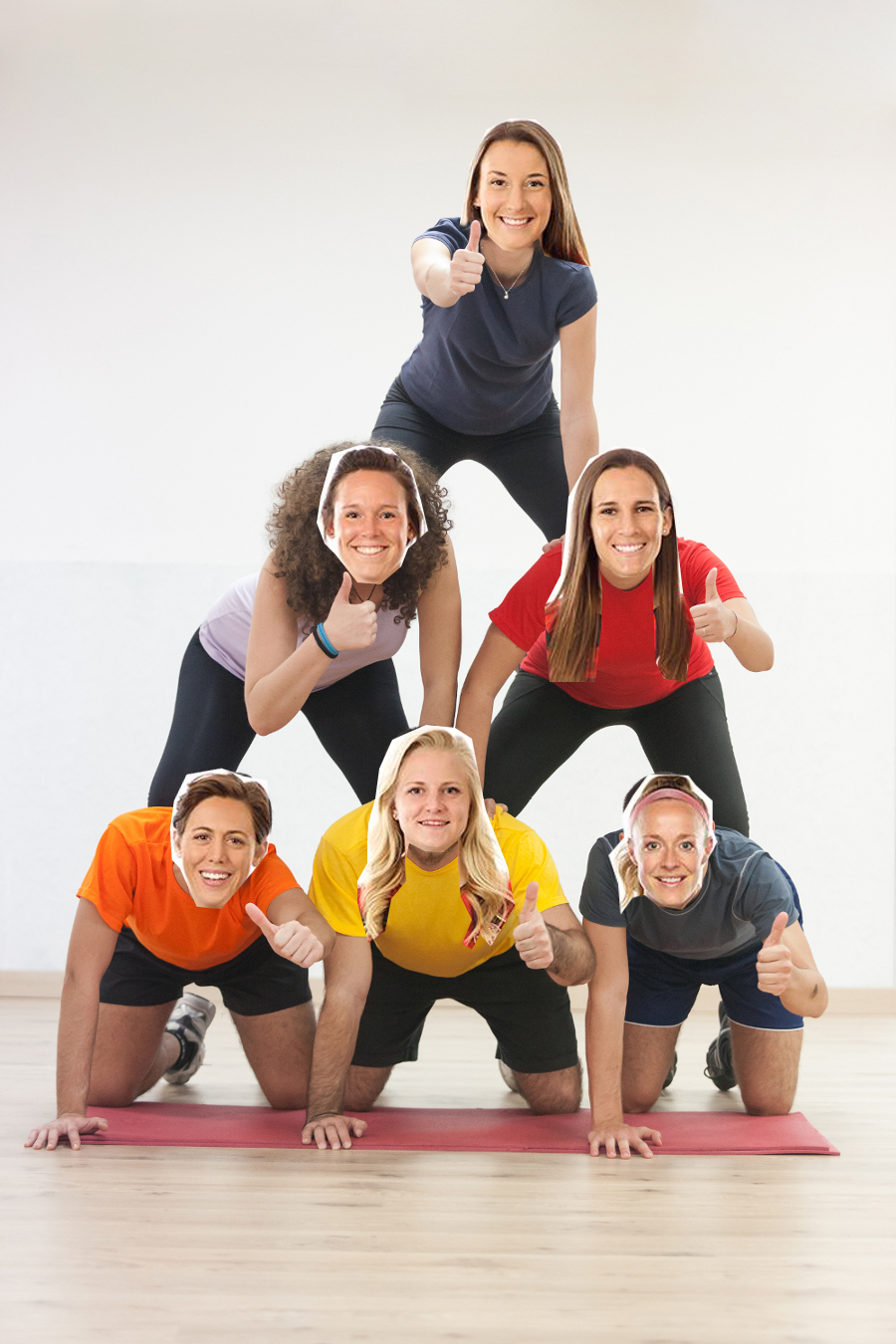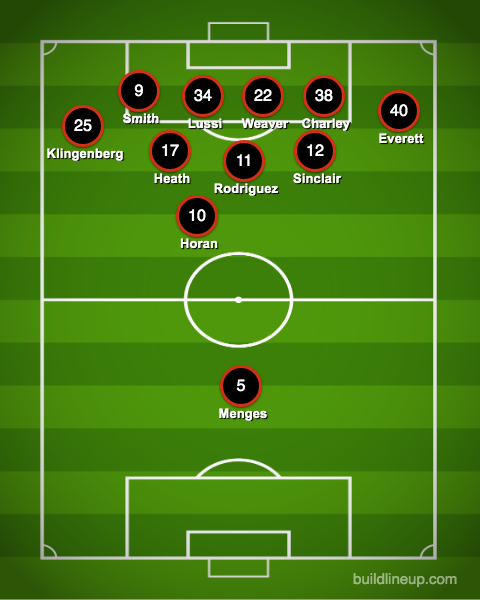Last Saturday, the Portland Thorns earned their second consecutive 3-3 draw, fighting back from going down a goal three separate times against the North Carolina Courage.
“I think to find ourselves down three times, it’s probably hard for to wrap me head around,” Thorns head coach Mike Norris said after the game, “but group kept pushing”—showing a resilience and rebound that Norris said he was “really proud of.”
So, let’s break all that down.
In defense of Emily Menges
Portland was unlucky to go down in the first minute, after a North Carolina cross deflected weirdly off of Thorns defender Emily Menges. It’s the third time the Thorns have conceded off an unfortunate deflection this year—the first being a Meaghan Nally own-goal against the San Diego Wave—and I’m not really sure what to make of that happening twice in the first month and a half of 2023 play. Are the new white kits cursed? Possibly.
North Carolina’s other two goals came in the forms of a brilliant individual effort from Kerolin and Courage rookie Olivia Wingate nutmegging Menges and getting off a cross to meet Victoria Pickett’s near-post run.
“I don’t want to be a team that’s conceded three goals,” Norris said, “but I didn’t think it was a poor defensive performance. I thought it was anything but that, to be honest.”
I don’t think Norris is outright wrong—it wasn’t an awful defensive performance—but the Thorns definitely could’ve been better on North Carolina’s third goal.
In that play, the Courage are working the ball up Portland’s left flank. As we’ve alluded to above, Kerolin sends a ball ahead to Wingate, who drives endline and ‘megs Menges. Klingenberg has been drawn out to mark Kerolin, so it’s center-back Kelli Hubly who has to step to Wingate, leaving Pickett in space.

As we see above, Hubly stepping leaves Natalia Kuikka marking two Courage players (Pickett near post and Tyler Lussi far post). Dunn and Sam Coffey have been standing at the top of the box and are just beginning their runs to cover—but it’s too late.
Of the goals, this one feels the most like a situation that could’ve been avoided with a little more communication and anticipation. Even if Menges doesn’t get beat here, the Thorns are defending three-on-three, which is a situation they’d want to avoid.
(In Menges’ defense, she also wasn’t the only Thorn to get beat on a North Carolina goal; Coffey dove in too early against Kerolin on the Courage’s second goal, getting beat and leaving Kerolin with far too much space in the center of the field.)
Still, I don’t think that’s a cause for concern, yet. Even though individual players got beat on North Carolina’s second and third goals, Portland’s other defenders weren’t able to effectively drop back and cover—an issue that will hopefully resolve itself as the team gets more used to playing together. Or as Crystal Dunn put it postgame, “We’re still early enough in the season where we know that it’s just these growing pains that we’re going to go through.”
Portland can still hurt you in so many ways
Outside of capitalizing on their chances, North Carolina, for their part, put together a pretty solid performance against the Thorns—especially in their work limiting Portland’s space in midfield. The Thorns, for their part, were forced to play wide or find quick passes through the center of the park, the latter of which they struggled to do consistently.
“We’re a team that’s at our best when we’re fluid,” Dunn said, “when we’re able to break teams down and not be stagnant.” Portland’s second goal was a prime example of that, she said.
In the buildup to the goal, we can see the Courage’s pressure—and the Thorns successfully playing out of that through quick passes. After Sophia Smith’s flick on to Meghan Klingenberg’s overlapping run, Dunn just has to push toward goal from where she’s sitting at the top of North Carolina’s box to get on the end of the cross.
Portland’s other two goals—the first from Dunn and the third from Olivia Moultrie—show another area where the Thorns found success: in their late runs out of midfield.
While we’re here, let’s take a moment to appreciate Moultrie’s game-tying goal—the cherry on top of her impressive performance off the bench.
Hey Liv, you dropped this during that unreal goal 👑#BAONPDX pic.twitter.com/fmdicfpNNG
— Portland Thorns FC (@ThornsFC) May 7, 2023
It’s still incredibly silly that, as a 17-year-old, she isn’t eligible for a player of the week nomination after that.




